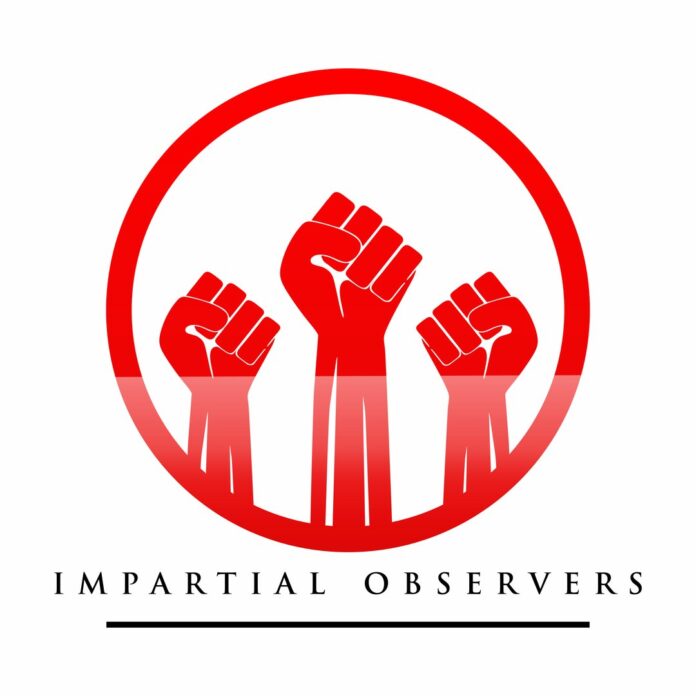By: Daure David
The ongoing legal battles involving Honourable Bashir Sai’du and Mr. Jimi Lawal, two prominent figures from the administration of former Governor Malam Nasiru Ahmad El-Rufa’i, have taken a deeply concerning turn, with growing allegations of political interference and judicial bias. What were initially seen as standard corruption trials have now evolved into a controversial saga of political manipulation, raising serious questions about the integrity of the legal process in Kaduna State.
Since early 2024, anti-corruption agencies have been selectively targeting individuals who served under El-Rufa’i’s government, with particular focus on those who remain close allies of the former governor. While several individuals who still hold key positions within the current administration of Governor Uba Sani have seemingly avoided scrutiny, others, such as Sai’du and Lawal, have faced aggressive legal action. This selective approach has raised concerns among many observers about the impartiality of the investigations, leading to suspicions that political motivations are driving the legal proceedings.
The situation took a darker turn on December 31, 2024, when Bashir Sai’du was illegally abducted by armed police officers, reportedly under the orders of Governor Uba Sani. Sai’du was taken to a magistrate court in Rigasa, where he was remanded to the Kaduna Prison. This heavy-handed action sparked outrage, with many accusing the Kaduna State Government of political retaliation against those perceived as loyal to El-Rufa’i.
Both Sai’du and Jimi Lawal were later charged by the Independent Corrupt Practices and Other Related Offences Commission (ICPC), and another case was filed by the Uba Sani administration in the State High Court. Despite the severity of the charges, both men were granted bail by the Federal High Court in Kaduna, albeit with stringent conditions. One of the key conditions was the verification of their certificates of occupancy by the Kaduna State Geographic Information Service (KADGIS). However, in a shocking development, KADGIS abruptly suspended its verification services, effectively preventing the fulfillment of the bail conditions.
This suspension has created a serious obstacle to the release of both men, and has raised concerns that the state government is deliberately obstructing the judicial process. Despite repeated reminders from the Court Registry, KADGIS has not resumed verification services, creating a situation where the legal rights of the accused are being ignored in favor of political interests.
In addition to this, the role of Justice Aikawa, the presiding judge in the case, has come under scrutiny. Following the grant of bail to Sai’du and Lawal, Justice Aikawa, who had plans to travel, delegated the task of signing the release order to another judge, in order to expedite their release once the bail conditions were met. However, despite the fulfillment of all the required conditions, the designated judge has allegedly refused to sign the release order. This refusal has sparked suspicions of external pressure or political interference, with credible sources indicating that Governor Uba Sani may be behind the delay in the release of the two men.
Legal experts and observers have expressed alarm at the apparent collusion between the Kaduna State Government and elements within the judiciary. Despite having met all the conditions for their release, both Sai’du and Lawal remain in detention at the Kaduna Prison, a situation that many believe reflects the growing politicization of the judicial system.
The ongoing detention of these individuals, despite fulfilling their bail requirements, has raised serious concerns about the erosion of judicial independence in Kaduna State. The manipulation of the legal process for political gain not only undermines the rule of law but also erodes public trust in the judicial system. As the situation develops, the public continues to question whether this is truly a matter of justice, or if it is simply a politically motivated attempt to silence critics of the current administration.
Governor Uba Sani’s actions, combined with the apparent reluctance of certain judicial figures to enforce the court’s orders, have cast a shadow over the legal proceedings. This situation is a stark reminder of how political power can be wielded to influence the judicial process, and it raises fundamental questions about the future of the rule of law in the state.
As Nigerians watch this case unfold, the broader implications of political interference in the judiciary will continue to reverberate, leaving many wondering if justice can truly be served when the courts are at the mercy of political power.







